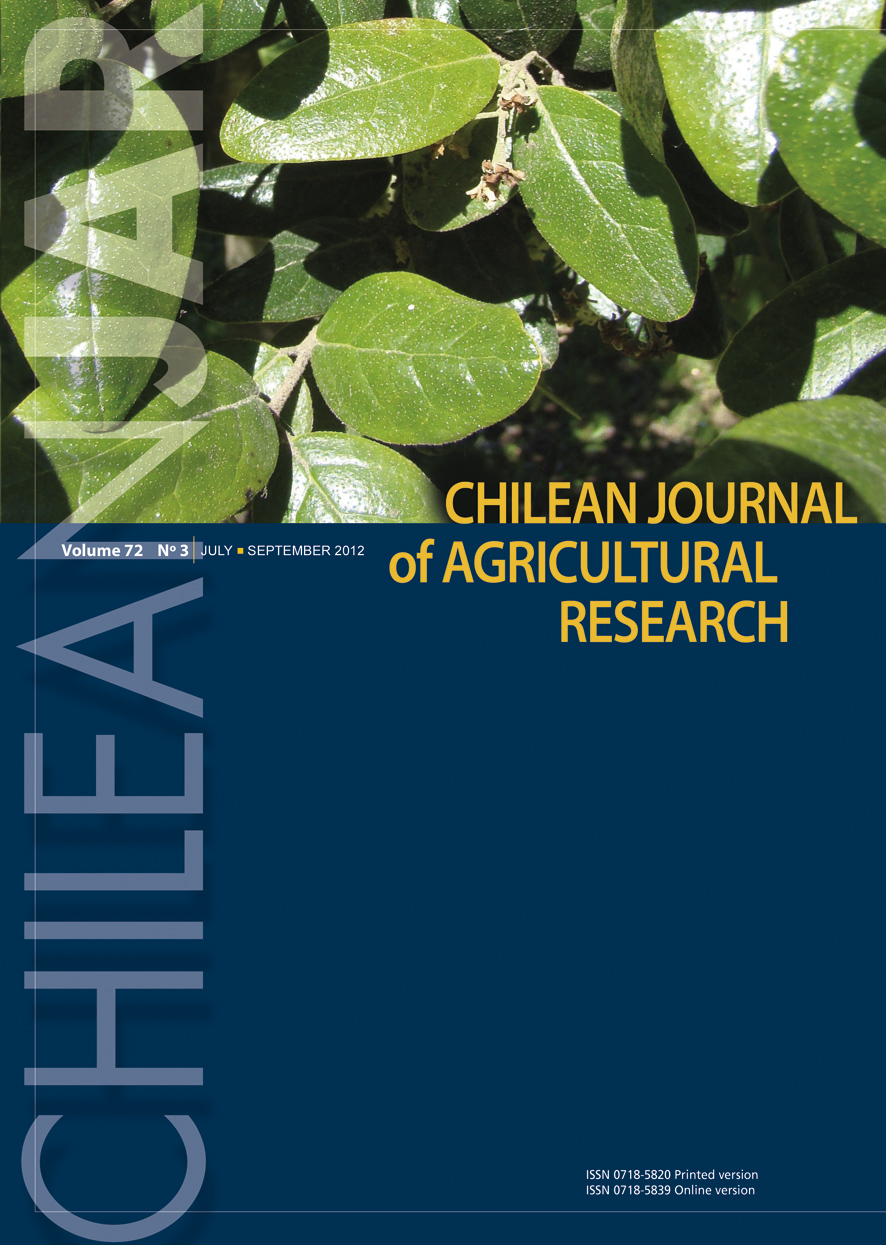
|
Chilean Journal of Agricultural Research
Instituto de Investigaciones Agropecuarias, INIA
ISSN: 0718-5820
EISSN: 0718-5820
Vol. 72, No. 2, 2012, pp. 252-261
|
 Bioline Code: cj12040
Bioline Code: cj12040
Full paper language: English
Document type: Research Article
Document available free of charge
|
|
|
Chilean Journal of Agricultural Research, Vol. 72, No. 2, 2012, pp. 252-261
| en |
LATITUDINAL ANALYSIS OF RAINFALL INTENSITY AND MEAN ANNUAL PRECIPITATION IN CHILE
Pizarro, Roberto; Valdés, Rodrigo; García-Chevesich, Pablo; Vallejos, Carlos; Sangüesa, Claudia; Morales, Carolina; Balocchi, Francisco; Abarza, Alejandro & Fuentes, Roberto
Abstract
The study and analysis of precipitation has become a crucial tool in understanding the temporal and spatial behavior
of water resources, in terms of availability and impact on extreme events. The objective of this study was to evaluate
different rainfall parameters (intensities for 1-h duration D = 1 h and return periods of T = 5 and 100 yr, and mean annual
precipitation) for different latitudinal and climatic zones in Chile. We analyzed the information recorded on thousands of
pluvial bands and rain gauges for 49 stations; this because it is unclear how rainfall intensities change along the country
(though total amounts do), in addition to a lack of literature focused on ranges and amounts on the behavior of rainfall
variables. The Gumbel probability distribution function (PDF) and mathematical rainfall intensity formulas were used to
develop intensity-duration-frequency (IDF) curves for each station. Maximum and minimum rainfall intensity values for T
= 100 yr ranged from 8.79 (hyperarid zone) to 40.17 mm h-1 (subhumid-humid zone). Total annual rainfall values ranged
between 43.9 (hyperarid zone) and 3891.0 mm yr-1 (humid zone). Additionally, the real maximum intensity registered on
each station was analyzed, determining its exceedance probability. Likewise, multiple comparisons were made to detect
significant differences between the gauge stations and different climatic zones using the Kruskal Wallis test (alpha = 0.05).
Differences between maximum and minimum values registered for all stations were as much as 80 times for total rainfall
amounts and 4.5 times for rainfall intensities (T = 100 yr). However, maximum rainfall intensities values were similar at
different latitudes, suggesting the absence of correlation between maximum rainfall intensity and annual rainfall amount,
as the latter variable increased gradually with latitude.
Keywords
Precipitation, frequency-duration-intensity curves, IDF curves, rainfall intensity
|
| |
© Copyright 2012 - Chilean Journal of Agricultural Research
Alternative site location: http://www.inia.cl
|
|
